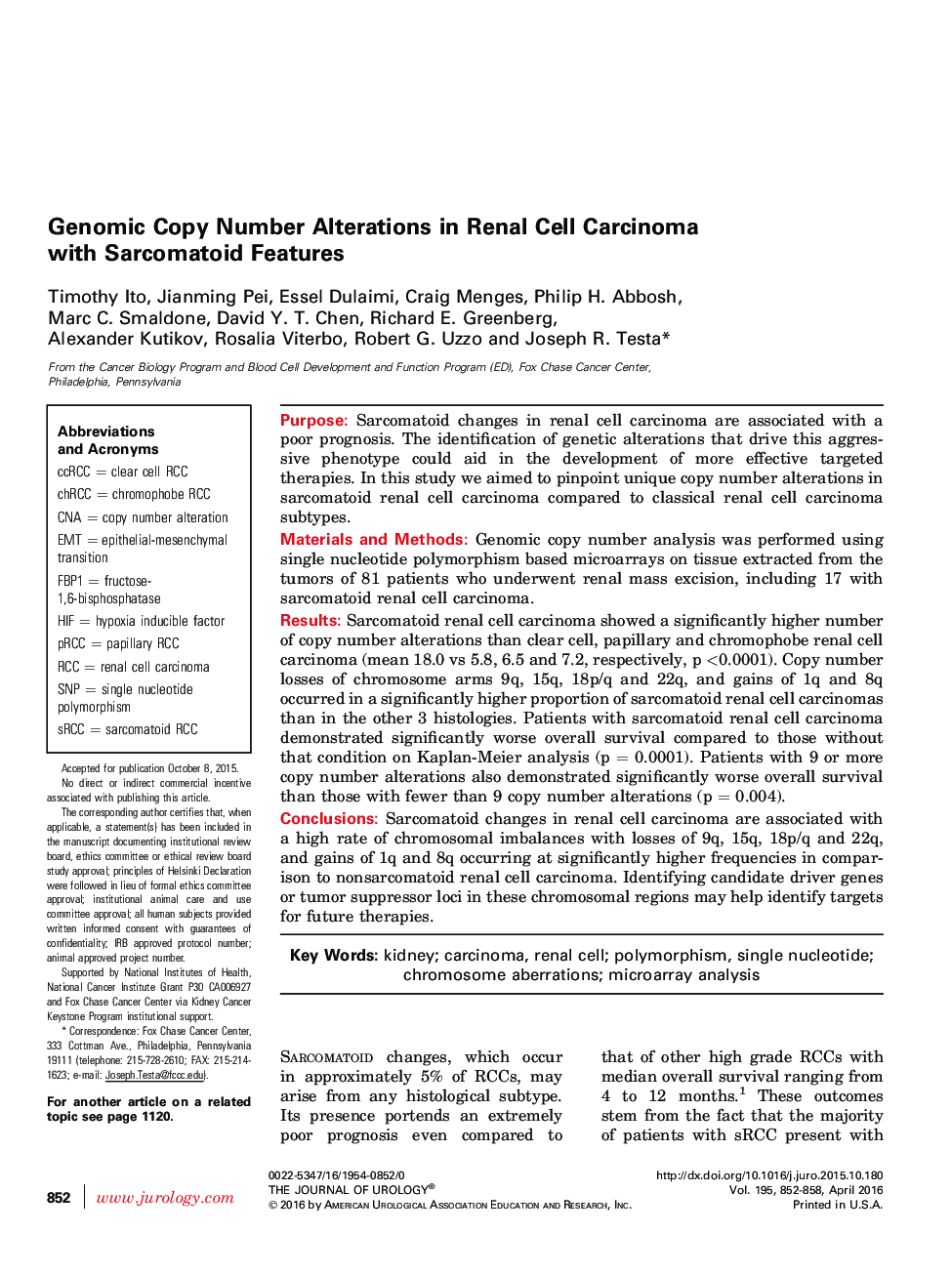| Article ID | Journal | Published Year | Pages | File Type |
|---|---|---|---|---|
| 3858510 | The Journal of Urology | 2016 | 7 Pages |
PurposeSarcomatoid changes in renal cell carcinoma are associated with a poor prognosis. The identification of genetic alterations that drive this aggressive phenotype could aid in the development of more effective targeted therapies. In this study we aimed to pinpoint unique copy number alterations in sarcomatoid renal cell carcinoma compared to classical renal cell carcinoma subtypes.Materials and MethodsGenomic copy number analysis was performed using single nucleotide polymorphism based microarrays on tissue extracted from the tumors of 81 patients who underwent renal mass excision, including 17 with sarcomatoid renal cell carcinoma.ResultsSarcomatoid renal cell carcinoma showed a significantly higher number of copy number alterations than clear cell, papillary and chromophobe renal cell carcinoma (mean 18.0 vs 5.8, 6.5 and 7.2, respectively, p <0.0001). Copy number losses of chromosome arms 9q, 15q, 18p/q and 22q, and gains of 1q and 8q occurred in a significantly higher proportion of sarcomatoid renal cell carcinomas than in the other 3 histologies. Patients with sarcomatoid renal cell carcinoma demonstrated significantly worse overall survival compared to those without that condition on Kaplan-Meier analysis (p = 0.0001). Patients with 9 or more copy number alterations also demonstrated significantly worse overall survival than those with fewer than 9 copy number alterations (p = 0.004).ConclusionsSarcomatoid changes in renal cell carcinoma are associated with a high rate of chromosomal imbalances with losses of 9q, 15q, 18p/q and 22q, and gains of 1q and 8q occurring at significantly higher frequencies in comparison to nonsarcomatoid renal cell carcinoma. Identifying candidate driver genes or tumor suppressor loci in these chromosomal regions may help identify targets for future therapies.
